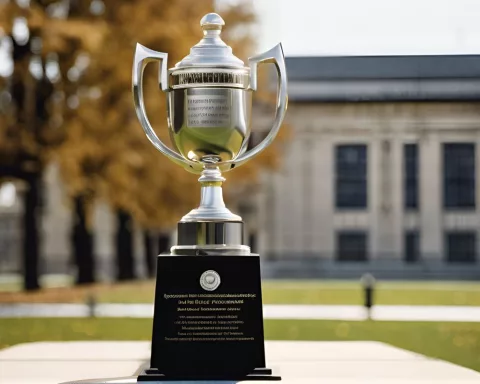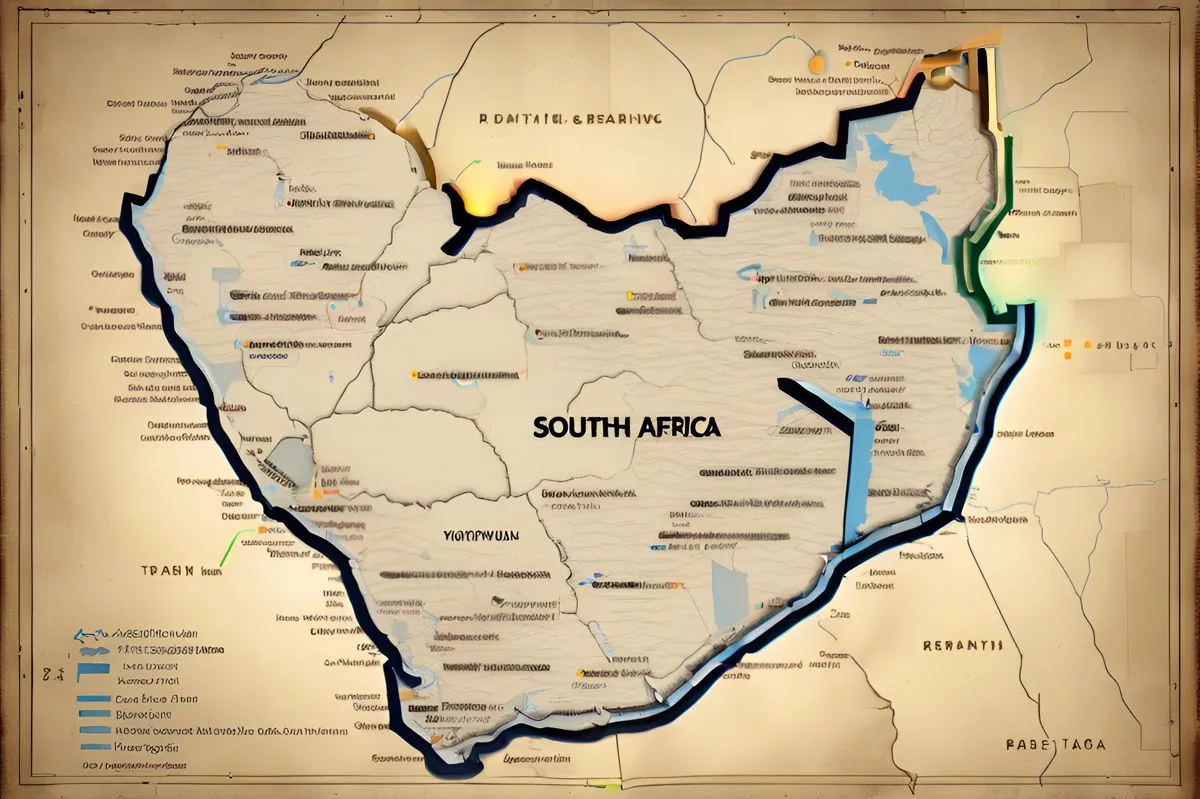Roxy Davis is a passionate surfer and scholar who uses the ocean to help children with disabilities through surf therapy. This exciting therapy helps kids gain confidence, resilience, and adaptability by riding the waves. Roxy’s journey began in Cape Town, where she turned her love for surfing into a mission, earning a PhD to explore how the ocean can heal. Her research shows amazing stories of transformation, proving that nature and community can create powerful change. Roxy inspires others to discover the healing magic of the sea while building supportive communities along the way.
What is surf therapy and how does it benefit children with disabilities?
Surf therapy is an innovative approach that uses the ocean to enhance the mental, emotional, and physical well-being of children with disabilities. Benefits include improved resilience, confidence, and adaptability, all fostered through immersive experiences in a sensory-rich environment.
The Journey of a Surfer and Scholar
Roxy Davis exemplifies inspiration, bridging the world of surfing with academic achievement. As the founder of the Roxy Davis Foundation and a nine-time South African surfing champion, she has managed to fuse her personal passion for the sea with her professional ambitions. Growing up amidst the waves of Kommetjie, Cape Town, Davis found her life’s calling in surf therapy, particularly for children with disabilities. Her pursuit of this passion led to a PhD in Health and Rehabilitation from the University of Cape Town (UCT), underscoring her commitment to exploring the therapeutic potential of the ocean.
Davis’s research, intriguingly titled “A World of Possibilities: An Exploration of Experiences of Children with Disabilities Participating in a Surf Therapy Programme in South Africa,” dives deep into the ocean’s transformative power. While surfing is often seen as a sport or leisure activity, Davis’s work uncovers its potential as a medium for therapy. Her study reveals how the ocean can enhance the mental, emotional, and physical health of children facing various challenges, offering a glimpse into human resilience and adaptability.
Her academic path began at UCT in 2019, initially aiming for a master’s degree. The profound implications of her research, however, warranted an elevation to a doctoral level. This journey came with its own set of hurdles, not least of which was the global impact of the COVID-19 pandemic. Despite these challenges, including managing pregnancy and household duties, Davis remained steadfast in her pursuit, embodying the resilience she aims to inspire in others.
Harnessing the Ocean’s Power: A New Therapeutic Frontier
The concept of surf therapy, though relatively new, is gaining traction in therapeutic and rehabilitation fields. It leverages the ocean not merely as a backdrop but as an active participant in the healing process. Through engagement with the dynamic ebb and flow of waves, participants build adaptability, confidence, and a sense of accomplishment. Surf therapy removes children from traditional therapy settings, immersing them in a sensory-rich environment that both challenges and nurtures.
Davis’s findings underscore the significant impact of this innovative approach. Her research documents substantial improvements in the mental health, emotional resilience, and physical abilities of children participating in surf therapy. Beyond statistics, her study tells stories of transformation—children who found their voices, built confidence, and embraced life’s challenges with renewed vigor. These stories breathe life into her work, painting a hopeful picture of what is possible.
Looking at the broader implications, Davis’s research provides a template for expanding surf therapy programs throughout South Africa. Her work acts as a guide, encouraging other regions to tap into their coastal environments for therapeutic purposes. The ocean becomes a shared space, accessible to all, offering its restorative powers to those in need.
Building Community Through Waves and Research
Roxy Davis’s motivation stems from witnessing the positive changes in individuals with disabilities. In conversations with IOL, she encapsulated this sentiment: “Every surf therapy session renews my passion, and I know we are building a community.” Her work transcends therapy and research, focusing on nurturing connections and fostering a supportive community that extends beyond the shores.
The personal stories of individuals like Raemondo Lessing, who embodies the spirit and success of surf therapy, highlight the initiative’s impact. These individuals navigate life’s hurdles with determination, serving as living testaments to the ocean’s capacity to heal and empower.
Davis’s advocacy for surf therapy echoes the broader cultural movement where nature and human experience intersect. Similar to how Romanticism celebrated nature’s sublimity and its effect on the psyche, surf therapy taps into the intrinsic relationship between humans and the natural world. It challenges conventional perceptions and invites a reevaluation of healing and wellness approaches.
A Legacy Intertwined with Nature and Community
Roxy Davis stands at the intersection of personal passion, professional success, and social contribution. Her work represents a harmonious blend of storytelling and analysis, turning each surf therapy session into both a narrative and a study. Through her unwavering dedication and vision, Davis has expanded the possibilities of therapeutic practice, reinforcing the idea that healing is a journey best undertaken with the support of community and nature.
Her story is a testament to the power of determination and innovation, inspiring others to explore the therapeutic potential within their environments. With the ocean as her ally, Davis continues to champion a movement that not only changes lives but also builds lasting communities. Through her pioneering work, she invites us all to consider the boundless possibilities of nature’s healing embrace.
FAQ
What is surf therapy and how does it benefit children with disabilities?
Surf therapy is an innovative approach that utilizes the ocean to improve the mental, emotional, and physical well-being of children with disabilities. Benefits include increased resilience, confidence, and adaptability, which are fostered through immersive experiences in a sensory-rich environment.
Who is Roxy Davis and what is her background?
Roxy Davis is a passionate surfer and scholar from Cape Town, South Africa. She is the founder of the Roxy Davis Foundation and a nine-time South African surfing champion. Roxy earned a PhD in Health and Rehabilitation from the University of Cape Town, focusing on the therapeutic potential of the ocean for children with disabilities.
What kind of research has Roxy Davis conducted?
Roxy Davis’s research, titled “A World of Possibilities: An Exploration of Experiences of Children with Disabilities Participating in a Surf Therapy Programme in South Africa,” explores how surf therapy can enhance the mental, emotional, and physical health of children. Her findings highlight significant improvements in participants’ resilience and adaptability through their engagement with the ocean.
How does surf therapy differ from traditional therapy?
Surf therapy differs from traditional therapy by moving the therapeutic environment from a clinical setting to the ocean, which serves as an active participant in the healing process. This approach immerses children in a dynamic, sensory-rich environment that fosters growth and resilience, allowing them to build confidence and experience a sense of accomplishment through riding waves.
What community impact has Roxy Davis’s work had?
Roxy Davis’s work has not only transformed the lives of individual participants but has also fostered a supportive community around surf therapy. By witnessing the positive changes in participants, she emphasizes the importance of nurturing connections and building community, which extends beyond the therapy sessions themselves.
How can surf therapy programs be expanded in other regions?
Davis’s research provides a template for expanding surf therapy programs throughout South Africa and beyond. By encouraging regions to utilize their coastal environments for therapeutic purposes, surf therapy can become more accessible, allowing more children to benefit from the ocean’s restorative powers and enhancing community engagement in the process.












